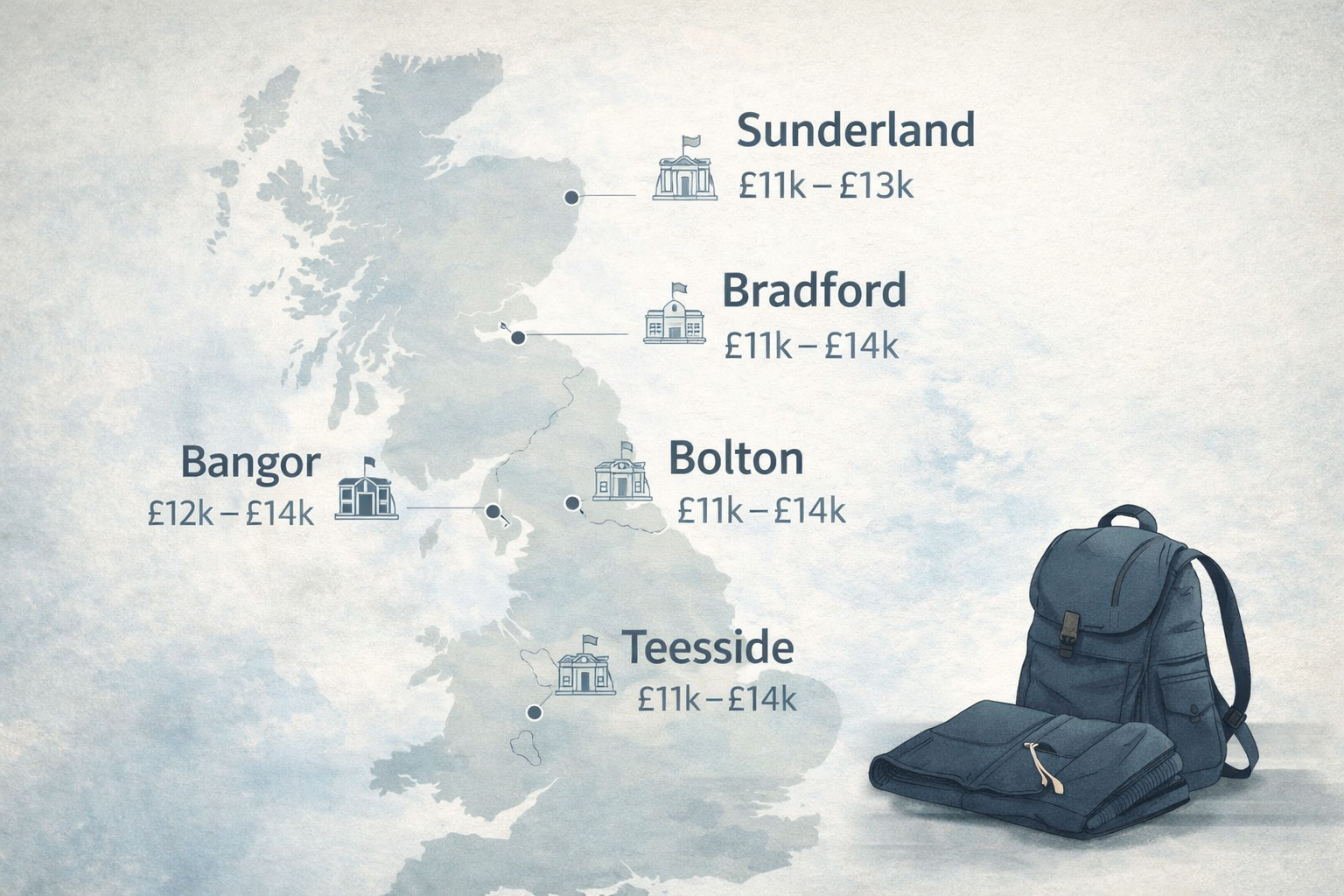Three years ago, during one of those particularly grim news cycles, I found myself wondering: what if someone dedicated their entire career to preventing the next pandemic instead of just responding to it? That question—naive as it might sound—captures exactly why thousands of students are now racing to submit their MPH in UK applications.
The truth is, public health isn’t just about disease outbreaks anymore. It’s about mental health epidemics, climate change health impacts, and health inequalities that make your blood boil. If you’ve ever looked at a health statistic and thought “this is absolutely ridiculous,” you might be perfect for an MPH in UK program.
The Unexpected Reality of UK Public Health Education
Here’s what nobody tells you about pursuing your MPH in UK: it’s not just another degree. The UK approach to public health education is refreshingly practical, with universities like Imperial College London, UCL, and Manchester leading the charge in innovative program delivery.
The UK approach to public health education is refreshingly practical. Unlike some countries where you might spend months theorizing about health policy, UK programs thrust you into real-world scenarios almost immediately. Most programs offer flexibility with both full-time and part-time options, allowing you to maintain your current job while building expertise that will completely transform your career trajectory.
What makes this particularly interesting is how diverse the entry requirements are. We require a minimum of an Upper Second honours degree or the overseas equivalent. If you have obtained a Lower Second class honours degree we may still consider your application if you have significant relevant research or professional experience (e.g. 3-years or more in a public health team) MSc Public Health | LSHTM at Manchester, while We welcome applicants from a diverse range of backgrounds. You will have, or be predicted, at least a 2:2 Honours degree in a relevant subject such as Life, Health or Medical Science degrees, or intercalating medical students, with relevant public health work experience Masters of Public Health (MPH) in UK Universities at Exeter.

Following the Money Trail (Because Let’s Be Honest)
Let’s talk about the elephant in the room: cost. Tuition fees vary significantly across universities, and understanding this landscape is crucial for making an informed decision about your MPH in UK journey.
The financial commitment is substantial, but the variation between institutions is remarkable. Here’s what you’re looking at realistically:
MPH in UK University Fees Comparison 2025
| University | UK Students (Annual) | International Students | Duration |
| University of Manchester | £13,000 | £28,500 | 1 year full-time |
| University College London | £14,000-16,000 | £32,000-35,000 | 1-2 years |
| University of Sheffield | £12,000 | £27,500 | 1 year full-time |
| University of Exeter | £11,500 | £26,000 | 1 year full-time |
This is where companies like GCRD Hub become invaluable. Their scholarship and financial aid support isn’t just about finding money—it’s about understanding which programs offer the best value for your specific career goals. Located at 107-111 Fleet Street in London, they’ve helped countless students navigate the complex landscape of MPH in UK funding options.
The Hidden Costs Nobody Talks About
Beyond tuition fees, there are numerous expenses that can catch MPH in UK students off guard. Living costs in London can easily exceed £1,500 per month, while cities like Manchester or Sheffield might run closer to £800-1,000 monthly. But here’s what really adds up: textbooks, software licenses for statistical analysis, conference attendance, and research materials.
I know students who spent £2,000 just on course materials and software in their first semester. The good news? Many universities provide access to essential software like SPSS, R, and specialized epidemiological tools. Still, budgeting an extra £3,000-5,000 beyond tuition and basic living expenses isn’t unreasonable for your MPH in UK journey.
The Application Game: Strategy Over Perfection
The application process for an MPH in UK program is where things get genuinely interesting. You must have completed your Bachelors in a relevant subject with a minimum score of 60% from a recognised university/college · You must have cleared an English proficiency test such as IELTS exam Top 10 Universities For Studying A Public Health Course In The UK | India represents the baseline, but the reality is more nuanced.
But here’s the thing—and this might sound controversial—your application doesn’t need to be perfect. It needs to be authentic. Universities are looking for candidates who demonstrate genuine commitment to public health, not just academic excellence.
I’ve seen brilliant applications that mentioned volunteering at a local food bank, analyzing health data at a small nonprofit, or even just being the person in their family who everyone calls when they have health questions. The key is demonstrating why you care about population health, not just that you do.
Application Timeline Reality Check:
For example, if you’re applying for the September 2025 intake, some deadlines may be set around December 2024—it’s best to check the course listing on your preferred university’s website as you explore your course options Public Health in United Kingdom: 2025 Master’s Guide
- Most scholarship deadlines are earlier than general admission deadlines
- English proficiency test results must be valid at the time of application
Mastering the Personal Statement for Your MPH in UK Application
Your personal statement can make or break your MPH in UK application. Universities want to see three things: passion, relevant experience, and clear career goals. But here’s the secret—they also want to see how you think about complex health problems.
Start with a specific example. Maybe you noticed that diabetes rates in your neighborhood were disproportionately high, or you witnessed the mental health impact of job losses in your community. Then connect that observation to broader public health principles. Show them you understand that individual health problems often have population-level solutions.
The most compelling personal statements I’ve reviewed for MPH in UK programs tell a story. They don’t just list accomplishments—they show how the applicant’s thinking has evolved and how an MPH degree fits into their long-term vision for improving population health.
Where Your MPH in UK Actually Takes You
The career outcomes are frankly staggering. You’re not just learning about health statistics—you’re learning how to design interventions that can affect thousands of lives. You’re understanding why some communities have higher rates of diabetes and others don’t. You’re becoming the person who can walk into a room and say, “Here’s what the data actually shows, and here’s how we fix it.”

The specializations available reflect how broad this field has become. Most MPH in UK programs offer tracks in:
- Epidemiology and Biostatistics: You become the detective of disease patterns. This is where you learn to spot the early warning signs of outbreaks, understand why certain populations are more vulnerable, and develop the analytical skills that health departments desperately need.

- Health Services and Systems: This is the business side of saving lives. You learn how healthcare systems work (or don’t work), how to make them more efficient, and how to ensure resources reach the people who need them most.
- Global Health: Think bigger picture. Climate change, international disease surveillance, health policy that affects entire regions. This specialization prepares you to work with organizations like the WHO or major NGOs.
- Environmental Health: Focus on how environmental factors impact population health, from air quality to water safety to occupational hazards.
The Real-World Applications That Matter
What sets MPH in UK programs apart is their emphasis on practical application. You’re not just studying theoretical frameworks—you’re working on live projects with real health departments, NGOs, and healthcare systems.
Take the University of Edinburgh’s program, where students have worked directly with NHS Scotland on reducing hospital readmissions. Or Imperial College’s partnership with local London boroughs to address health inequalities. These aren’t simulations—they’re real projects that impact real communities.
One graduate I know spent her dissertation project developing a mobile health intervention for diabetes management in rural Wales. The project was so successful that the Welsh government adopted it as a pilot program. That’s the kind of immediate impact that MPH in UK programs are designed to produce.
The Support System That Actually Matters
Here’s where the rubber meets the road. Pursuing an MPH in UK isn’t just about getting accepted—it’s about thriving once you’re there. The academic workload is intense, the concepts are complex, and you’re often dealing with emotionally heavy material about health inequities and disease burden.
This is precisely why GCRD Hub’s end-to-end admissions support and pre-departure orientation become so valuable. They understand that getting into the program is just the beginning. Their tailored academic placement service recognizes that not every MPH in UK program is right for every student, even if you meet all the requirements.

The Technology Revolution in Public Health Education
The current provision of MPH programs in the UK has adopted the concept of technology to the extent that it could only be considered to be fantastic five years ago. You are being taught how to utilize machine learning at predicting disease outbreaks, interpret data on social media to track mental health patterns, and utilize GIS mapping to learn how to better understand health disparities.
The program at the University of Manchester will have modules learning digital health interventions, and UCL will have specifically trained health data science. These are not some fancy extras which you can add on; these are the mainstays of being a professional in the field of public health in 2025.
The reality of networking that no one talks about
The last network-building opportunity that comes as a surprise is the one offered in the possibility of attending multiple classes in the United Kingdom to earn your MPH there. Students in your courses are not only students, they are employees (working professionals) and they are located all over the globe with several years of experience in health departments, NGOs and their health delivery systems.
I personally have a friend who was lucky enough to get a job at the UK Health Security Agency partially because the manager of his classmate needed somebody with the same skill set as him or her. Such relationship is natural when you are collaborating on a group project on real-life health issues.
Making Your Decision: The Practical Steps
If you’re seriously considering applying for an MPH in UK program, here’s what you need to do right now:
- Research thoroughly beyond rankings. Look at faculty research interests, available internships, and career services support.
- Calculate the real cost. Don’t just look at tuition—factor in living expenses, potential lost income, and the opportunity cost of being a student again.
- Consider your timeline. Application deadlines vary, but most programs start in September with applications due between December and May.
- Get professional guidance. Companies like GCRD Hub offer tailored academic placement services that can help you identify programs that align with your career goals rather than just your academic qualifications.

Key Decision Factors for Your MPH in UK Application
| Decision Factor | Questions to Ask | Why It Matters |
| Specialization | What specific health challenges excite you most? | Determines career trajectory |
| Location | Do you want urban exposure or smaller communities? | Affects networking and internship opportunities |
| Funding | How will you finance this without crippling debt? | Determines your freedom to take ideal jobs post-graduation |
| Work Experience | Can you gain relevant experience while studying? | Most employers want both education and experience |
The Bottom Line: Why This Matters Now
Public health scene has transformed radically within the last couple of years. With COVID-19, we also exposed our existing deficiencies in our public health infrastructure, but it was also an event to realize how crucial highly trained public health professionals can be.
By looking at a program of MPH in UK, you are not only investing in your degree, you are setting yourself on a path to be the solution to some of the very pressing health issues of our day. The programs are hard and the career outlooks are high and the possibilities of having actual impact are mind-blowing.
The line of interrogation is never; can you afford to study MPH in UK; but rather; can you afford of not to do so? It is time to act due to application deadlines and aid opportunities in forms of scholarships.
To secure one-on-one advice on your MPH in UK application experience, you may contact GCRD Hub at +44 7756 428968. They provide complete services including academic placement, pre-departure orientation; the difference between an effective application and an application that can easily be misplaced in the pile may be their presentation.
A single decision is the beginning of your future in the field of public health. Make it count.
FAQs About MPH in UK Programs
How much does it take to get an MPH in UK?
An Upper Second honours degree or equivalent overseas requirements are required. You are required to attach it along with your application to study MSc Public Health at most universities in case you have a Lower Second class honours degree but could be still considered provided that you have considerable relevant research or professional experience (e.g. 3-years or more in a public health team)
What is the duration of MPH in UK?
The majority of programs take 1 year as a full-time study or 2 years as part-time studies. Other universities have available modular options where students have high flexibility.
Is MPH in UK program available on scholarships?
Scholarships do exist in universities, YES. The particular scholarship is available in individual university websites and may have different deadlines.
How does an MPH differ to an MSc Public Health?
An MPH is generally more practical based and teaches applied skills whereas an MSc might lean towards the side of research. Both are good but it is up to what you want in your career.
Am I allowed to work during my studies of an MPH in UK?
They offer part time programs and under some conditions international students may work part-time. See the regulation of UK students visas.





